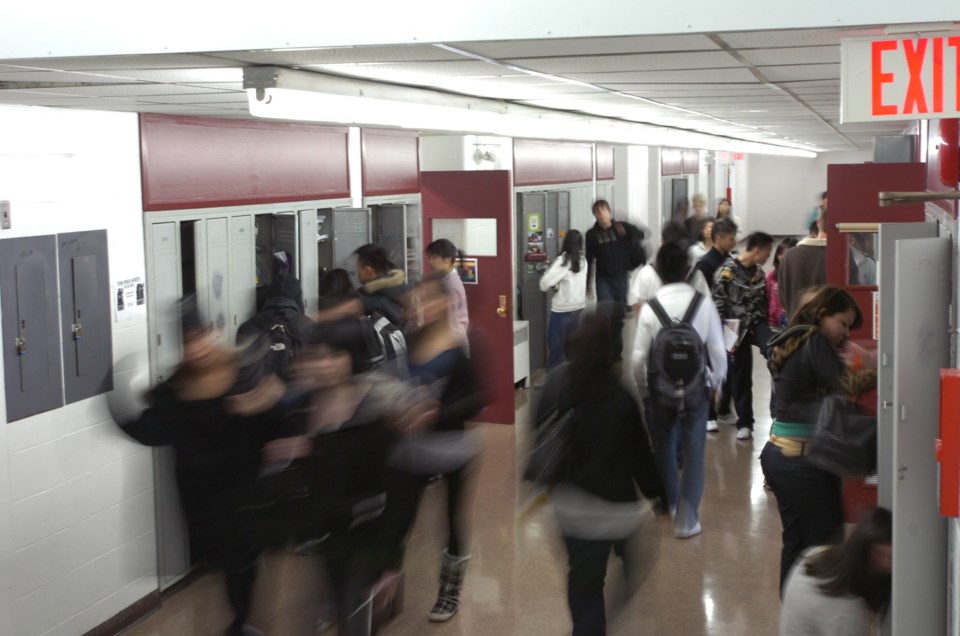“Access to education creates opportunities that span generations — it has the power to change a family forever.”
That’s a point B.C.’s Finance Minister Carole James made early on in her budget speech on Tuesday in Victoria. She was referring to her own mother, who, as a single mom of two in the 1950s, returned to college to become a teacher.
“It put her on the pathway to economic independence and opened doors for me and my sister,” James said.
In that spirit, James’s mostly status-quo budget offers up a new grant program for post-secondary students, B.C. Access Grants, providing up to $4,000 a year per student. Part-time students and those in programs shorter than two years will be eligible for the needs-based grants, James said. More than 40,000 students are expected to benefit from the program, which will cost $24 million over the next three years.
“As finance minister, but also as a mother and grandmother, I know the success of our province depends on giving our kids the best possible support in life,” James said in her budget speech.
Kindergarten to Grade 12 students will also see a $339-million budget bump, over three years, to cover increased enrolment of more than 5,000 students this year, supports for an increasing number of students with special needs and a supplement for children in foster care. In the 2018-19 school year, there were 73,107 students with special needs in the province, which was up by 3,422 from the year before.
Since 2016, when the teachers won back class size and composition rules in Canada’s Supreme Court, enrolment has grown about 3.2 per cent, while funding has increased by 17.1 per cent, Education Ministry figures show.
Total education funding for 2020-21 will be $6.7 billion, an increase of 1.8 per cent.
The funding bump doesn’t include a contract settlement for teachers — that would come out of contingency funding — but James insisted the deal won’t be more than what any other unions have received.
“The mandate is the mandate and the money is in the budget for the mandate,” James said. Ěý
There is $600 million in contingencies built into the budget, but that also has to cover risks like global trade uncertainty, commodity prices, weather, interest rates and the local housing market.
But B.C. Teachers’ Federation president Teri Mooring said she’s encouraged. Ěý
“I’m hopeful the government will return to mediation at the end of February with a willingness to put new funding on the table that will allow both sides to negotiate a good deal,” Mooring said.
The number one issue for Mooring is improving salaries to be more competitive with the rest of Canada.
“B.C. has an unprecedented number of unqualified and uncertified people working in schools as teachers,” Mooring said.
There are unfilled teacher vacancies every day in every region of the province, she said, which force specialist teachers to be redeployed into classrooms rather than helping students with special needs.
Nearly $3 billion will be spent over the next three years to build, maintain, replace, renovate or expand schools, the budget says.
Overall, B.C.’s economy is forecast to be stable, but debt is forecast to rise to 17.8 per cent of GDP by 2023, the budget shows. There are two significant new taxes — one on income tax for people earning more than $220,000 a year that is expected to bring in more than $200 million a year and another on sales of soda pop, that is expected to bring in $37 million a year.
In her budget speech, James also referred to her personal experience of growing up in a home that included dozens of foster kids.
“Growing up alongside children of all ages and abilities showed me that while everyone has something to contribute to this world, not everyone is given the opportunity they need to make their mark,” James said.
In 2017, the NDP government waived tuition fees for former foster children at all public post-secondary schools in B.C. and there are now 1,100 such students getting their post-secondary education for free.
To further support those students, the new budget expands eligibility for an income support program, so that about 250 more former youth in care qualify each year.
There are also small funding increases to help Indigenous kids stay connected to their culture, for foster children more generally and for autism support through the children’s ministry.
Although a deal for teachers is essential, given global volatility, a stand-pat budget feels about right. If these numbers pan out, the province should be on solid ground.
Ěý



